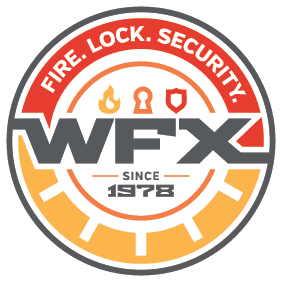Fire Safety
Fire Safety Guide
The Importance of Properly Maintaining All Fire Equipments
- Fire extinguishers, emergency lighting, fire suppression systems, alarm systems, sprinkler systems and all fire equipment require regular maintenance. This maintenance is not only a requirement by applicable codes and regulations, it is essential to ensure the equipment stays in proper working order so it can provide the protection it was designed to provide.
- Smoke detectors and carbon monoxide detectors – the importance of having the proper types, quantities, changing batteries, etc.
- Fire escape planning:
https://www.nfpa.org/Public-Education/Staying-safe/Preparedness/Escape-planning
- Emergency preparedness:
https://www.redcross.org
https://www.fema.gov
https://www.ready.gov
- The ‘Authority Having Jurisdiction’ can address specific hazard situations and interpret applicable codes and regulations. This is typically a State or local Fire Marshal.
Fire extinguishers are rated by UL (Underwriters Laboratory) to assign a numeric value, symbolic of how much fire they are expected to extinguish. These ratings are used to select the proper size and type fire extinguisher for commercial and industrial applications.
How to Use a Fire Extinguisher

Types of Fires


Type B fires include flammable liquids like petroleum, gas, or oil-based paints.



Safety Rules to Follow
There are five types of fires that require different extinguishing agents to fully eliminate them:
- Keep work areas free of debris.
- Report or replace any damaged cords or outlets.
- Only use approved containers for transporting combustible or flammable liquids or metals.
- Practice fire safety procedures consistently.
- Inspect and test fire prevention systems regularly.
Westminster Fire Extinguisher Services believes training employees on fire safety and prevention is a crucial part of your fire safety plan. Scheduling meetings on the topics listed above and adhering to fire codes will help minimize your risk for fires in the future.
